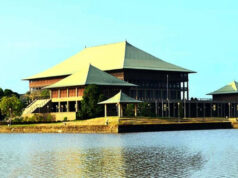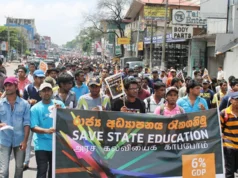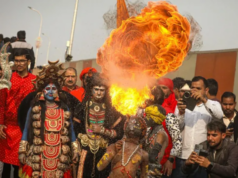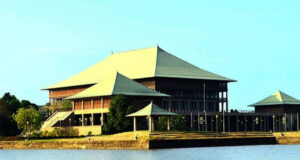A Tragic Intersection
By Ifham Nizam
Snakebites are a serious and growing public health crisis in Sri Lanka. More than 30,000 people are hospitalised annually after being bitten by snakes, but despite the best treatment, about 45% of these individuals die in hospital, says renowned scientist Dr. Rohan Pethiyagoda. He said so, delivering the S.R. Kottegoda Oration, “The Theory and Practice of Corruption in Sri Lanka” recently, organised by the Sri Lanka Association for the Advancement of Science (SLAAS).
During his oration, Pethiyagoda discussed the complexities of corruption in Sri Lanka, its roots, and the effects on the country’s governance, economy, and society. He said the real devastation happened at the community level. Sri Lanka is home to more than 100 species of snakes, but only five are responsible for most of the deaths.
Pethiyagoda added that venomous bites could be neurotoxic or hemotoxic, affecting nerve functions or blood clotting, which can lead to death if not treated promptly. Yet, over 50% of snakebites are “dry bites,” meaning that no venom is injected. Further complicating the issue is the inability of many victims to correctly identify the snake, making it difficult for doctors to administer the right treatment.
Currently, he said the main solution to snakebites in Sri Lanka was polyvalent antivenom, a costly treatment that comes with its own set of problems. Each phial of antivenom costs around Rs 10,000, and a patient may require as many as ten phials. Furthermore, since the antivenom is made from horse serum, it can cause severe allergic reactions in some patients, posing another medical risk.
However, there’s a glimmer of hope; Professor Kala Madu, a brilliant Sri Lankan medical innovator, has created a blood test that can quickly identify if a person has been envenomated and pinpoint the species of snake responsible. “The test is not only highly accurate but also incredibly affordable, potentially costing as little as Rs 200. After receiving initial funding from philanthropists, Professor Madu’s team successfully developed a functional test and tested it at Monaragala Hospital, which sees a large number of snakebite cases. The test was shown to be 100% effective, compared to the slow and expensive ELISA test currently in use.
But the road to progress has been hindered by corruption within Sri Lanka’s intellectual property system. Professor Madu, after applying for patents for his invention, discovered that his patent had been fraudulently registered in India under a company with no medical research background. The patent is now held by a Chennai-based company, forcing Sri Lanka to pay royalties for the use of the test. Despite waiting for years, the Sri Lankan Intellectual Property Office has not granted Professor Madu the patent, leaving his innovation in limbo. Disillusioned by this experience, he abandoned his work in Sri Lanka and took up a professorship in Australia.”
Pethiyagoda, who worked closely with Professor Madu, emphasised that the incident illustrated a broader issue in Sri Lanka––the absence of trust.
He pointed out that trust, or the lack of it, between individuals, institutions, and society was a critical factor that affects not only innovations like Professor Madu’s snakebite test but also the country’s overall progress. Pethiyagoda remarked, “Trust is the key. It’s not just about trust between individuals, but also between individuals and institutions, and trust at the societal level.”
Countries with higher levels of trust tend to have more efficient governance and are able to fight corruption more effectively. Unfortunately, Sri Lanka’s struggles with corruption and inefficiency are deeply rooted. Dr. Pethiyagoda suggested that punishment alone cannot solve the problem of corruption. Instead, societal change must come from building trust, transparency, and integrity across all levels of society. This, he argued, is crucial if Sri Lanka is to overcome its widespread issues with corruption.
The case of blood donations in Sri Lanka offers a rare example of success. Despite economic challenges, Sri Lanka donates more blood than its income levels would suggest. The National Blood Transfusion Service (NBTS) in Sri Lanka has been able to leverage religious beliefs to encourage donations.
He added that by claiming blood donation as a meritorious deed, the NBTS had successfully mobilised large segments of the population to donate blood, especially on full moon days. This unexpected success demonstrates the power of social capital and community-driven efforts.
He stressed that Sri Lanka’s challenges with both snakebites and corruption were deeply interconnected. The lack of trust in government institutions leads to systemic inefficiency and corruption, which ultimately impacts public health outcomes and development.
“If Sri Lanka is to move forward, it must focus on restoring trust, ensuring transparency, and supporting innovation—qualities that are essential for a society to thrive. Until then, both snakebite victims and those working to combat the corruption that hampers progress will continue to face uphill battles,” he added.








